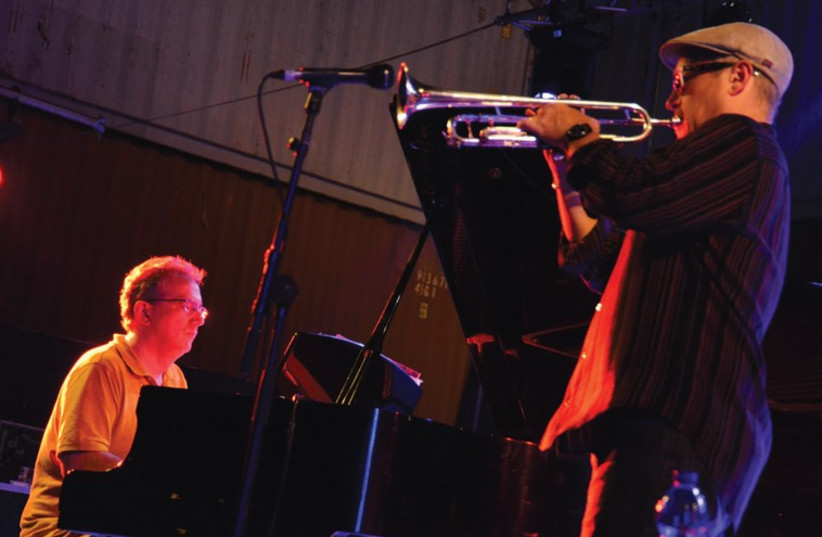The Israeli music community has lost a towering figure. While that may seem like a stock epithet one unfurls when someone dies, Dubi Lenz’s death last week, at the age of 76, undeniably leaves a giant void in the local world music and jazz scenes.
I got to know Dubi over the years. We met up at jazz festivals here and abroad, and enjoyed chewing the fat together. Invariably, the main topic of discussion would be some jazz artist or other, and sometimes we would agree to disagree.
Opinions aside, it is fair to say that few have done more to further the cause of Israeli jazz across the globe than Lenz. Whether it was orchestrating the Israeli stand at the annual blue chip jazzahead! trade fair and festival at Bremen, Germany, or popping over to Australia as a Foreign Ministry emissary charged with spreading the word about Israeli jazz Down Under, Lenz could always be relied on to do the business, and with a genial smile.
Dubi Lenz: furthering the cause of Israeli jazz worldwide
I viewed Dubi as a world music maven who also had a thing for jazz. And what a thing. He was founding artistic director of the winter version of the Red Sea Jazz Festival in Eilat, which, as per his wont, always featured an intriguing array of musicians from across the multifarious ethnic genre.
His popular radio show Hakol Zorem (Everything Flows) began life back in 1982, and introduced generations of listeners to the rhythms and vibes of music from cultures and places from around the globe, sounds you would not hear anywhere else. This was, of course, long before the advent of the Internet, and YouTube. In your mind’s eye you could see Lenz’s big toothy smile flashing as he lovingly talked about the likes of French-Lebanese trumpeter Ibrahim Maalouf or Brazilian multi-instrumentalist Hermeto Pascoal. He had a thing about Latin music. I recall catching him grooving with his daughter in the aisle at the summer edition of the Red Jazz Festival, quite a few years back now, as the Latin-leaning band on stage played its heart out.

And, unlike quite a few radio show presenters around today, who generally give the impression they are reading from Wikipedia when they enlighten us about some artist, you always felt that Lenz really knew what he was talking about, and really liked what he was proffering for our listening pleasure.
His long career with Army Radio included presenting Kol Hajazz Hazeh (All This Jazz), which he took over after the death of his longtime friend and jazz specialist Danny Karpel. The two also compiled and presented the Do Re Mi Yomi music program for Army Radio, and Lenz had his seasoned hands in numerous programming pies at the station over the years, also serving as head of the Music Department. For several years he added his wealth of knowledge and warm avuncular presentational skills to the 88 FM radio station roster.
Few would query Dubi’s inestimable contribution to the local music scene, and the winter edition of the Red Sea Jazz Festival in Eilat simply won’t be the same without seeing his imposing, beaming figure ambling onto the stage, spreading good cheer to the audience, as he illuminates us about the special gifts of the next act, and how he felt when he heard them perform at some festival across the seas. For Lenz music was always personal.
It will take some getting used to, not having him around, not espying his hulking laid-back frame as he chats with some clearly admiring and appreciative jazz musician or other. The musicians always knew he was on their side and did his homework before he interviewed them. Dubi was knowledgeable about the music, but, above all, he loved it and was happy to share that with one and all.
